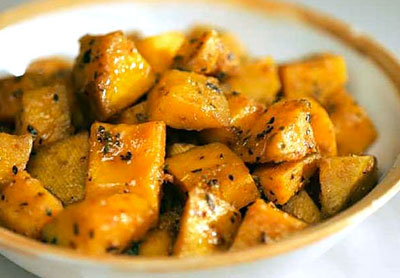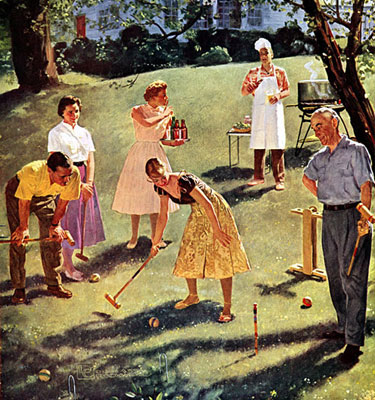 Never mind the name, these sweet, nutty squash are harvested in the fall. They are called "winter" because their hard shells allow them to be stored for extended periods, and in the days before refrigeration, that was a quality more worth honoring than mere harvest seasonality. The earliest winter squash are just beginning to trickle into the market -- kabocha, butternut and acorn, mostly.
Never mind the name, these sweet, nutty squash are harvested in the fall. They are called "winter" because their hard shells allow them to be stored for extended periods, and in the days before refrigeration, that was a quality more worth honoring than mere harvest seasonality. The earliest winter squash are just beginning to trickle into the market -- kabocha, butternut and acorn, mostly.
When they’re first picked, they can be a little short on flavor. But after a week or two that changes, particularly for squash such as butternut and kabocha. These benefit from a couple of weeks of "curing" after being harvested, which allows time for enzymes to convert some of their starch into sugar. Acorns are from another family and do not require curing. They're better bets this early in the season.
How to choose: Look for squash with deep, saturated colors and no soft spots or cracks. The stem should be hard and corky too.
How to store: Keep winter squash in a cool, dark place. You don't need to refrigerate them.
How to prepare: Here's a recipe for happiness during the coming rainy season: Hack off a chunk of winter squash and remove the seeds; place it cut-side down in a pan with just a little water, and roast it at 400 degrees until the whole thing collapses into a sweet, fragrant, slightly caramelized puree.


